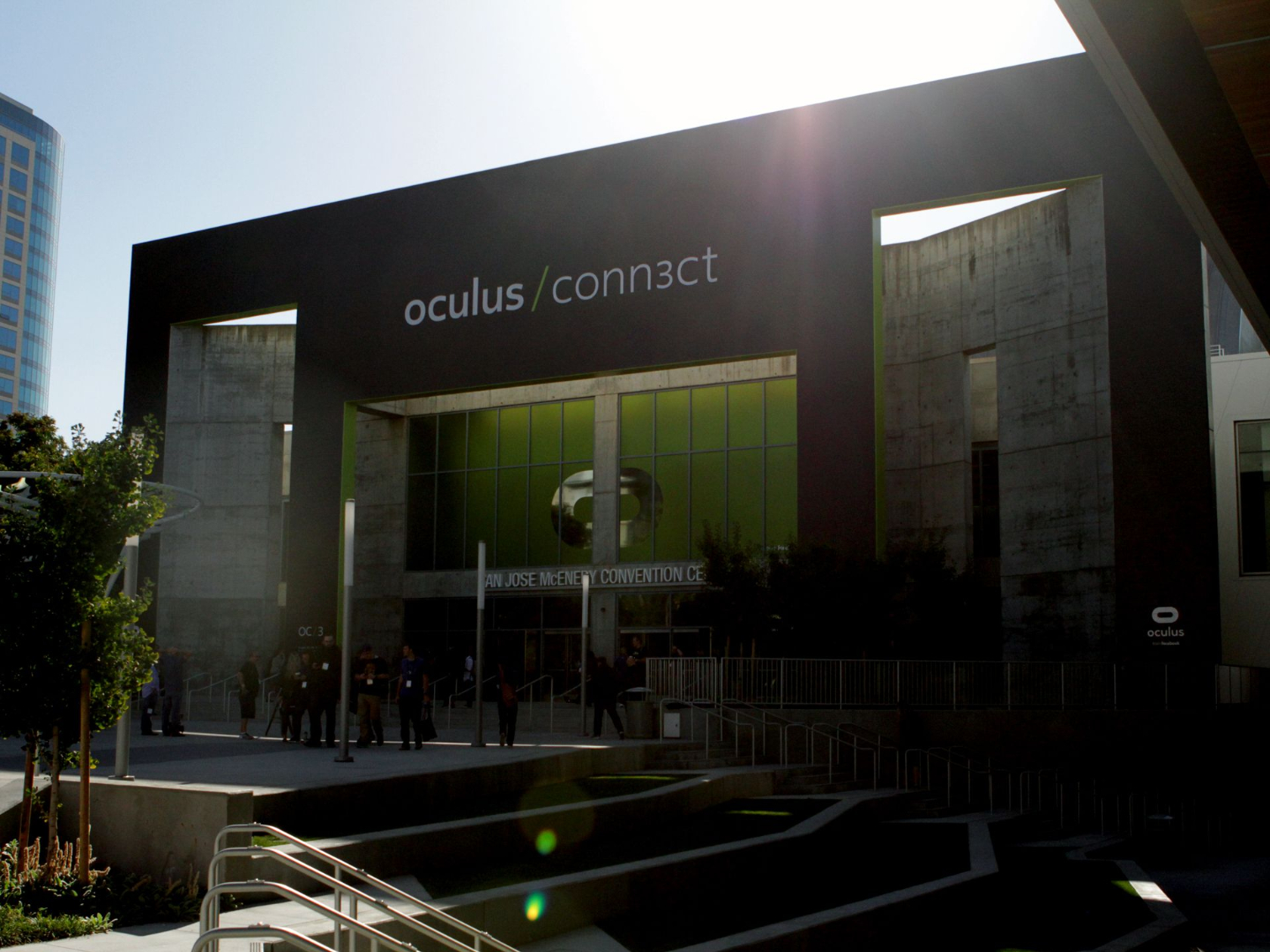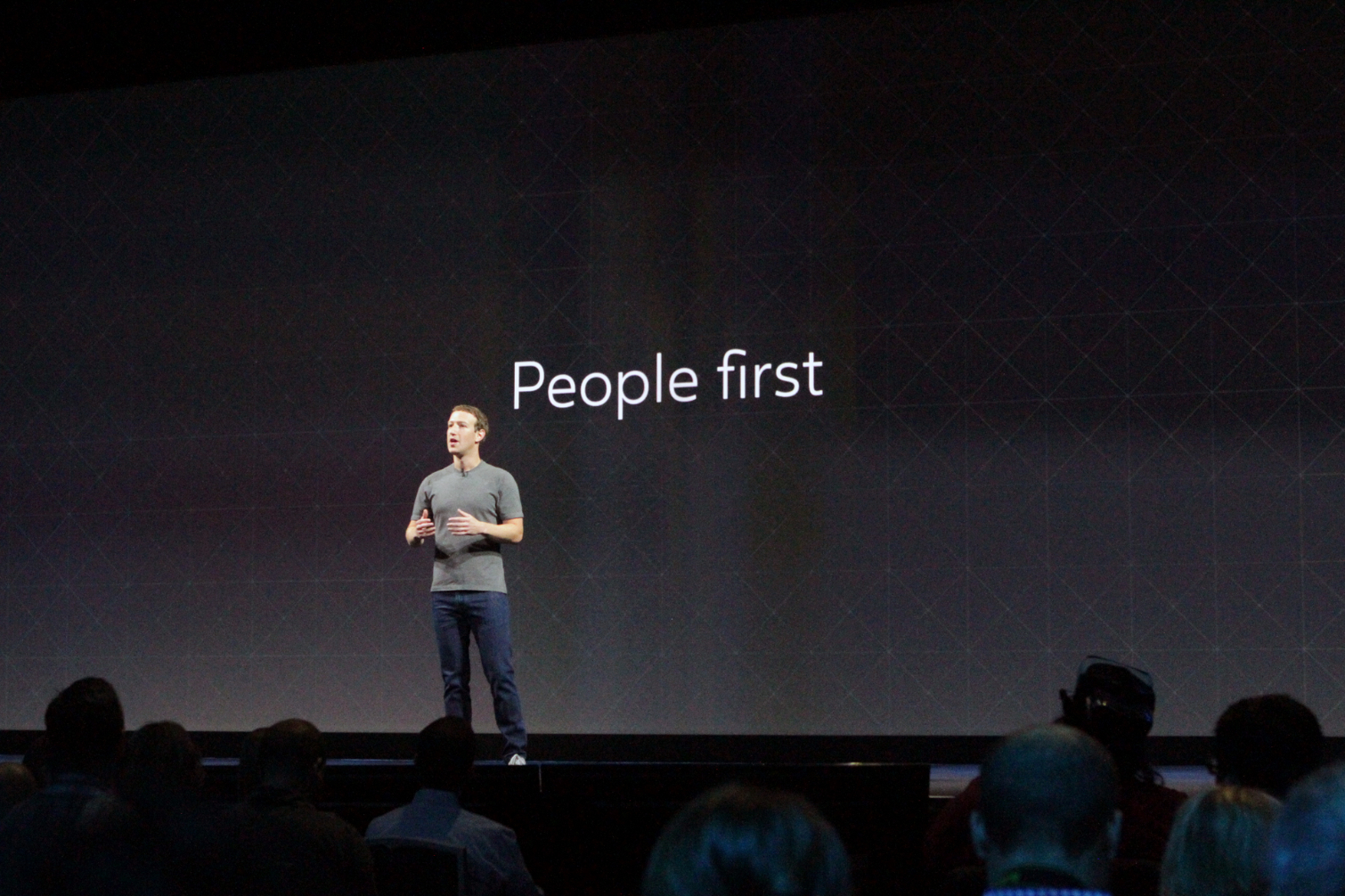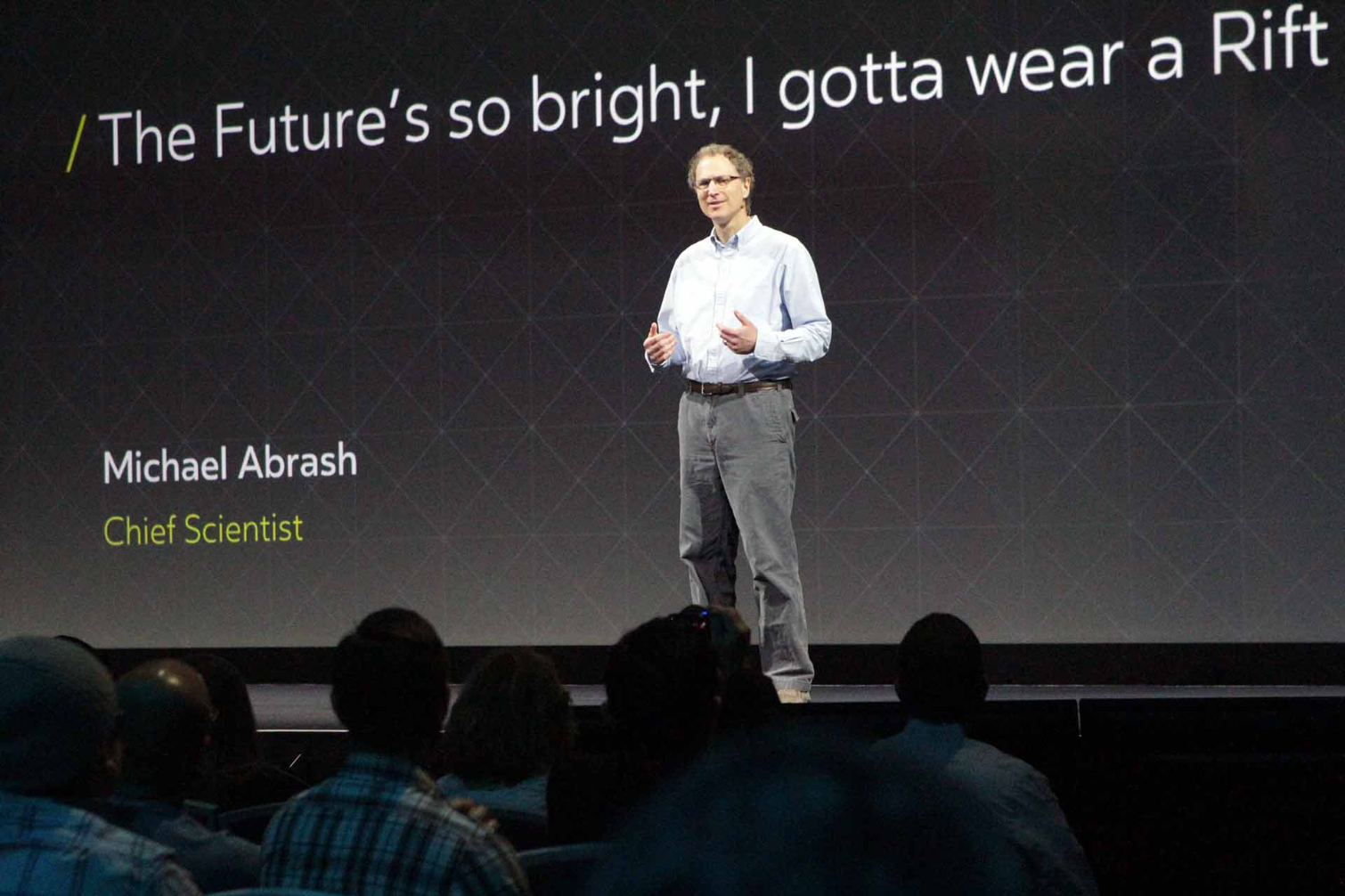Oculus Connect 3 Recap: What You May Have Missed
One of the hallmarks of a great tradeshow or developer conference is how much discussion it generates, and if the amount of chatter in our comments section and editorial room alike are any indication, that means Oculus Connect 3 (OC3) was a good one. The multi-day event featured some things we expected, such as the release of the Oculus Touch controllers (at last), but there were numerous surprises, as well. Further, now that we're almost a couple of weeks removed from the event, we've had a chance to digest everything we saw and heard and experienced and come away with some insights into the Facebook/Oculus VR strategy.
First, here’s a quick rundown of our content during and after OC3, in case you missed it:
Announcements:Oculus Confirms Touch Shipping In December, Supports Room-Scale VR With A CatchOculus Reveals Asynchronous Spacewarp, Lowers VR Minimum SpecWeb VR: Oculus, Facebook Pushing VR For All With React VR, 'Carmel' BrowserFacebook Shows New Social Presence Demo, Oculus Reveals Avatars, Parties, RoomsOculus Touch Pre-Orders Are Open, But You Don't Have To Rush If You Pre-Ordered A RiftGames:Funomena's 'Luna' Puzzle VR Game Soothes And EnchantsInsomniac Games' 'The Unspoken' Casts You In VR Wizard DuelEpic Games' 'Robo Recall' VR Game Picks Up Where 'Bullet Train' Began'Lone Echo': Brutal VR Space Ultimate Frisbee (Hands On)I'd Play 'Landfall,' An Oculus Rift Third-Person RTS With Xbox Controllers, For HoursVR Gameplay Mechanics In 'Killing Floor: Incursion'Thoughts:Facebook, Oculus Show VR Industry The MoneyOculus Touch Controllers: The Good And The BadOculus Rift, Untethered: Project Santa Cruz, Hands OnAbrash Predicts The Future Of VR
Facebook’s Fingers
One overarching theme did strike us, especially at the keynote: Facebook is now heavily engaged with what Oculus is doing in VR. Back when the social network dropped a cool $2 billion to bring the upstart VR company into the fold, the message was that Facebook would be entirely hands off, even letting the Oculus crew stay at its existing offices instead of moving to Facebook HQ in Menlo Park.
To an extent, that has held; Rift development seemed to be happening directly in competition with HTC’s Vive development, and certainly, Facebook was wise to let that particular race run its course.
Vive won the sprint on first-gen hardware, and Oculus has more or less caught up with the announcement of its Touch controllers and new roomscale capabilities. (Of course, just this week HTC teased some new Vive controllers, so there's that.) But in the minds of Mark Zuckerberg, Michael Abrash, and John Carmack, that was just round one. We got the feeling that Facebook and Oculus are already pushing hard at the next step--or should we say “steps,” plural, because the parent and child companies seem to have some different (and some similar) priorities when it comes to the future of VR.
For most enthusiasts, VR presents incredible new ways to game, and to that end, people want to hear about better hardware, faster processing, improved optics, and so on. Those enamored of the Vive and Rift (and now, PSVR) are already champing at the bit for next-gen hardware. However, that’s just one part of the Facebook/Oculus VR story, and given that the “Facebook” name was littered all over OC3, and considering what Zuck himself announced from the stage, it seems he’s now imposing himself and his vision onto the VR wing of Facebook.
Get Tom's Hardware's best news and in-depth reviews, straight to your inbox.
Three Heads
Minus the absent Palmer Luckey (for PR reasons more than anything, we hear), you can see the trajectory of Oculus/Facebook by listening to three (arguably) most important heads.
Abrash, always the futurist, is the one who’s looking at ways the industry can improve upon what we see today--more in line with the enthusiasts who want next-level VR gaming. “VR five years from now will make VR from today look like something out of prehistory,” he said from the OC3 stage. He pointed to the need for a better graphics pipeline, higher-resolution HMDs, improvement in eye tracking technology, and more.
Carmack the tinkerer seems more keen on mobile VR. In his closing keynote, he elaborated on the potentiality of Project Santa Cruz, the early-prototype Rift variant that’s an untethered, self-contained system--not unlike what Intel and Microsoft are planning to develop and commoditize. He freely acknowledged the challenges but evinced an optimistic outlook that mobile hardware could provide a compelling VR experience.
Zuckerberg is both a visionary and an entrepreneur. He understands the tech and what it can do, but he’s not into tech for tech’s sake. He wants his company to change the world in positive ways--that will also make his company a lot of money. His vision is one in which VR is integral to the future of Facebook and social interactions.
What To Look For Next Year
Given all of the above, though, we’d be surprised to see the second generation of HMD hardware any time soon. One sub-theme we picked up on at OC3 was the notion that Oculus believes that the Rift provides a great development platform, and now that the Touch controllers and roomscale tracking are here, it’s time to turn things over to developers and see what they can do with it all. It’s a tick-tock, if you will: The tick is the hardware and platform, and the tock is a development cycle. Devs have really just begun to explore everything the Rift and its components can do.
That’s a long-term play, to be sure, but Oculus has Facebook money, so it can afford to be patient. (Or, thought of another way, perhaps all that Facebook money shows that the company is becoming impatient.) HTC and Valve, for their part, are investing buckets of money into pushing Vr forward as well--just not as much.
In the meantime, we wouldn’t be surprised to hear and see more about Project Santa Cruz. Whether or not VR for the non-enthusiast gaming set will catch on in the form of untethered HMDs is a huge question mark for the industry, but some of the most important tech companies in the world--including Facebook, Microsoft, Intel, Google, and even Qualcomm--are betting that it will.
There is a crop of smaller companies that are innovating in these spaces, such as SMI, Impression Pi, Dacuda, and many others; we expect that some of these companies (and their IP and human resources) will get snapped up by some of the larger ones in 2017.
Seth Colaner previously served as News Director at Tom's Hardware. He covered technology news, focusing on keyboards, virtual reality, and wearables.
-
Zapin So putting Facebook front and center at Oculus events is a better PR move than Palmer Luckey? Not sure either is a good option.Reply -
Jim90 For high end rendering we'll need a connected PC for some time, or rather, the next significant iterations from either of the green or red camps for full screen rendering and that seems a long way off. Alternatively, accurate foveated rendering might be put to good use a lot sooner.Reply -
computerguy72 Iterating sooner rather than later might be a good thing for Oculus. They should call their first attempt "pioneering" - this time producing a large quantity in advance to ship on or near the day it's announced. This isn't like other tech in that you can get away with sitting on your hands. Intel Tick-Tock worked fine with only AMD competing. VR has everybody and their brother. It's a smartphone type race that is easy to lose. So many other innovators are invested in this and this strategy seems to be yet another Oculus silly mistake.Reply -
scolaner Reply18743836 said:For high end rendering we'll need a connected PC for some time, or rather, the next significant iterations from either of the green or red camps for full screen rendering and that seems a long way off. Alternatively, accurate foveated rendering might be put to good use a lot sooner.
Well that's one of the big questions, isn't it? In a nutshell: Do you get to the next level of VR by throwing more horsepower at it or by being clever? That's the fundamental question, IMHO, facing the VR industry right now.
I think most of the bigger VR hardware companies are pursing both avenues at present, and the answer to the question is probably "a little of both." -
bit_user ReplyGiven all of the above, though, we’d be surprised to see the second generation of HMD hardware any time soon.
I guarantee there'll be a next gen within 1 year. It'll be an incremental improvement, with a similar resolution. Perhaps it'll support 120 Hz, maybe it'll be a bit lighter, cheaper, have integrated cameras for inside-out tracking, wireless, etc. But this field is evolving so fast, I'm sure they already started working on the next gen before Rift even started shipping.
It's going to be "both", for the foreseeable future. PC graphics lead smartphones by 5-10 years, due to power & thermal constraints. There's no amount of "clever" that can make up for that, because any clever thing you can do on a smartphone, you can do on the PC & unlock the next level of realism.18750174 said:I think most of the bigger VR hardware companies are pursing both avenues at present, and the answer to the question is probably "a little of both."
The PC just needs wireless HMDs. Once it has that, mobile will have no advantages, other than cost. But due to cost, mobile will always be the platform for the masses. I see it as sort of like console vs. PC gaming. Consoles have the volume, but PC is where the cutting edge lies.



